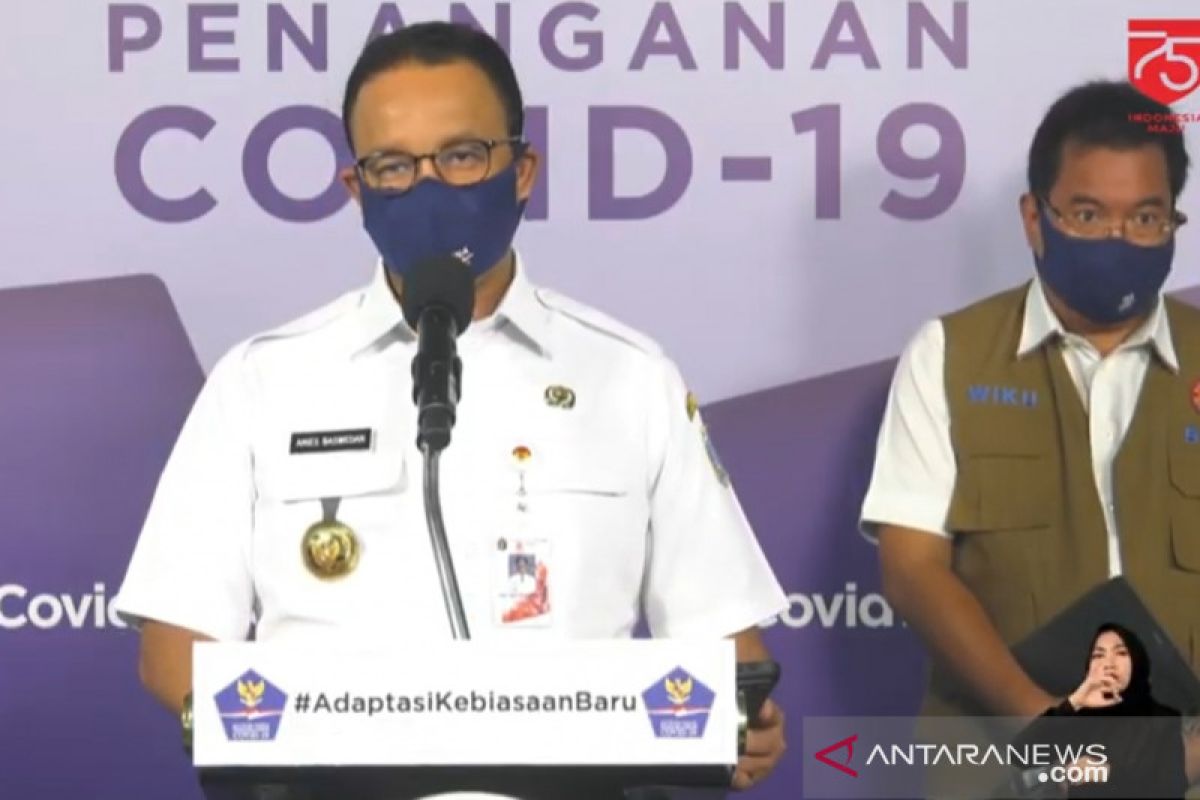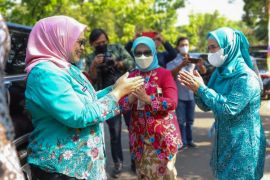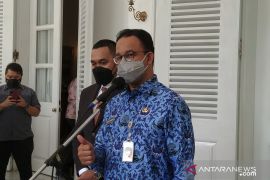The restrictions had been relaxed as part of the shift towards the transitional PSBB.
"Considering the emergency situation in Jakarta, there are no other choices but to put the emergency brakes. This means that we have to implement the PSBB as it was in the beginning of the pandemic. This is the emergency brake that we have to pull," he said at a press statement at the Jakarta City Hall on Wednesday evening.
His decision of reimposing the PSSB in the capital city was prompted by three indicators that had raised the concern of the DKI Jakarta government, including the mortality rate, availability of isolation beds and ICU facilities for COVID-19, as well as the rate of positive cases.
"In the past two weeks, mortality rates have spiked back up. In terms of percentage, they may still be considerably low, but in terms of the numbers, they have gone back up. The availability of beds is at maximum capacity and they may be fully filled by the end of the month, if there are no restrictions," he explained.
The re-enforcement of large-scale social restrictions will be effective from September 14, 2020, although Baswedan is yet to confirm when it will be lifted.
It has been reported earlier that the positivity rate of COVID-19 cases in Jakarta has reached 13.2 percent, or above the safe number of under 5 percent prescribed by the World Health Organization.
Based on DKI Jakarta government data, active cases in Jakarta, including patients receiving treatment or undergoing isolation, have reached 11,245 as of Tuesday. Meanwhile, the total number of confirmed cases in Jakarta now stands at 49,837, with 37,245 recoveries and 1,347 deaths.
The data released by the DKI Jakarta Health Office on Wednesday also reveals that bed availability for daily COVID-19 isolation at 67 referral hospitals is at 77 percent of the total capacity of 4,456 beds.
The figures also show that there are 1,024 daily isolation beds for COVID-19 handling that are vacant.
Meanwhile, the occupancy rate at intensive care units (ICUs) has reached 83 percent of the capacity of 482 beds, leaving only 83 ICU beds remaining in 67 referral hospitals.
Related news: Ban on Indonesian travelers may affect nation's image: legislator
Related news: Java, Bali contributed 64.26 percent of total COVID-19 cases: Team
Translator: Ricky Prayoga/Aria Cindyara
Editor: Rahmad Nasution
Copyright © ANTARA 2020












